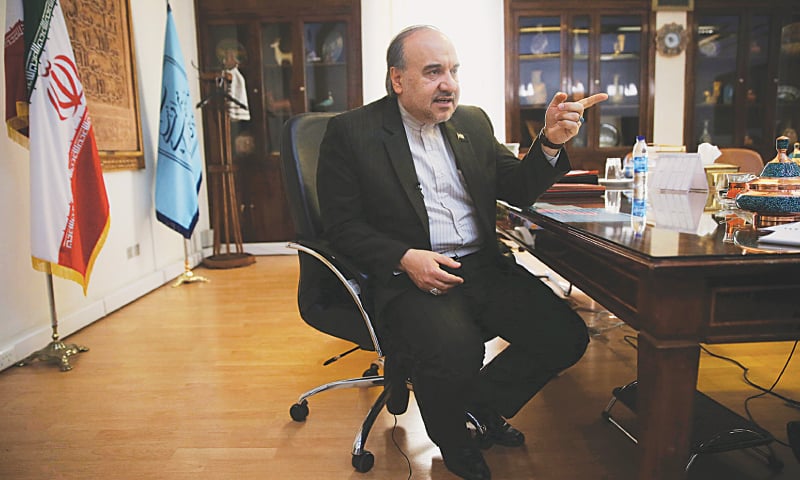WASHINGTON: The United States and Europe began preparing to lift the trade sanctions that have hobbled the Iranian economy on Sunday as a historic nuclear deal came into effect.
The procedure to lift the embargo began 90 days after the UN Security Council endorsed the accord signed in Vienna in July, a milestone referred to as “Adoption Day”. But foreign firms will not be able to resume ties with Iran’s oil industry and banks right away — sanctions will remain in place until Iran fulfils its end of the bargain.
The next stage in the process — “implementation day” — will only come when UN nuclear watchdog the IAEA confirms Iran has dramatically scaled back its nuclear programme.
Tehran will have to surrender or dilute the bulk of its enriched nuclear fuel stocks, dismantle most of its centrifuges and halt a reactor capable of making plutonium.
Only then will the sanctions “waivers” that US President Barack Obama ordered his administration to issue on Sunday come into effect and trade can begin to resume.
“If fully implemented, it will bring unprecedented insight and accountability to Iran’s nuclear programme forever,” US Secretary of State John Kerry promised.
“This is an important day for all of us and a critical first step in the process of ensuring that Iran’s nuclear program will be exclusively for peaceful purposes.” The European Union’s foreign policy chief Federica Mogherini and Iranian Foreign Minister Mohammad Javad Zarif were also expected to make “adoption day” statements.
Ali Akbar Salehi, the head of Iran’s nuclear agency, was awaiting President Hassan Rouhani’s order to remove thousands of centrifuges from sites at Natanz and Fordo. “What we need to accomplish is a huge task. We hope to start this week or next week,” he told state television.
Dismantling the centrifuges, which enrich uranium, was part of a July 14 deal, known as the Joint Comprehensive Plan of Action, between Iran and six world powers.
As well as slashing the number of centrifuges at Natanz and Fordo to around 6,000, Iran will have to satisfy the IAEA that its Arak reactor cannot be used for military purposes.
China has agreed to work with Iran and the United States to “modernise” Arak so that it cannot produce plutonium, which can be used in a bomb, US officials said. Iran has always denied seeking a nuclear weapon, which would dramatically alter the balance of power in an already unstable and war-torn Middle East region.
“We will start our actions when the president gives the order,” Salehi said of Rouhani, estimating that the work to comply with the JCPOA would take around two months.With Iranian citizens restless for economic relief, Tehran has said it hopes “implementation day” will come quickly — in less than two months — but Washington is more cautious.
“For us it’s important that it’s done right, not that it’s done quickly,” a senior administration official told reporters. “We cannot imagine less than two months.” Some have voiced hope that, once the nuclear stand-off was out of the way, the United States and Iran could begin moves to improve relations in other domains.
But ties have, if anything, become more fraught, with Iran last week testing a ballistic missile and stepping up its military intervention to support Bashar al-Assad in Syria.
Hardliners in both the US Congress and the Iranian regime are opposed to a broader detente.
Published in Dawn, October 19th , 2015
On a mobile phone? Get the Dawn Mobile App: Apple Store | Google Play















































Dear visitor, the comments section is undergoing an overhaul and will return soon.